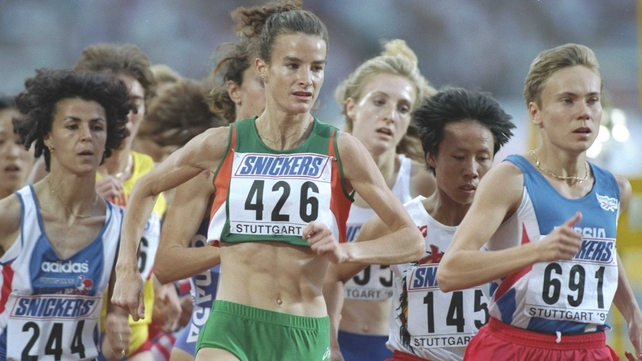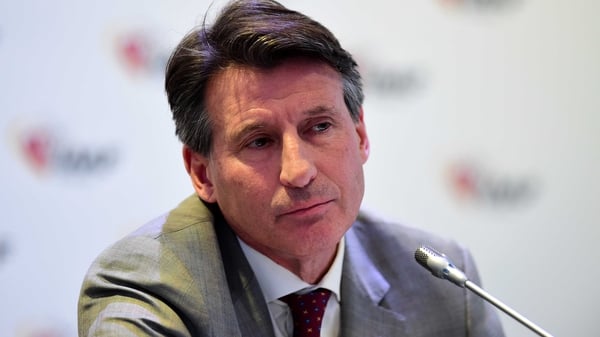Sonia O'Sullivan has said she knew the Chinese athletes who denied her World Championship gold in 1993 were performing "beyond human capability".
O'Sullivan came fourth in the 3,000m and took silver in the 1,5000m back in '93, with only Chinese competitors ahead of her in both races.
Qu Yunxia, Zhang Linli and Zhang Lirong made it a clean sweep for China in the 3,000m, with Liu Dong pipping O'Sullivan to gold in the 1,500m.
However, a letter reportedly signed by Olympic champion Wang Junxia 19 years ago is believed to have lifted the lid on what amounted to a Chinese state-sponsored doping regime during that period, outlining how Chinese athletes were forced to take “large doses of illegal drugs over the years”.
“A lot of the coaches and managers used to go and watch this every day and they couldn’t believe it."
Speaking of her competitors' phenomenal performances on RTÉ 2fm's Game On, O'Sullivan said: “It wasn’t normal, the level of training they were doing between races, when most other people would be resting and getting ready to give the biggest performance on the day whereas they were out there racing around the track every day.
“A lot of the coaches and managers used to go and watch this every day and they couldn’t believe it. The hardest thing was, there was nothing they could do about it. It was alien to everyone.
"'What is going on, how are these people doing this?'. You say, 'okay well if you’re training that hard then of course you’re going to produce fantastic result', but how does your body cope with that? In the laws of general training and recovery it’s not possible.
“To get the results they got they were cheating, but if they were cheating and they it wasn’t by choice, then definitely they were victims.
“It was beyond human capability. I knew I couldn’t copy them because there were reports they were running 160 miles a week. At that time I wasn’t even running 100 miles a week.
"I would keep running until I got an injury and I just couldn’t run. Then you’d have to go off and do alternate training and train three times as hard and on the bike and then come back ready to go again."

O'Sullivan added that she hopes that IAAF president Sebastian Coe reveals he knew the extent of corruption within the organisation so that athletics can finally wipe the slate clean and begin rebuilding its tattered reputation.
Coe was vice president to former IAAF chief Lamine Diack when the 82-year-old came under investigation by French police under suspicion of taking bribes to cover up positive drugs tests.
It triggered an avalanche of revelations and scandals that eventually led to last week's allegations that Chinese athletes who denied O'Sullivan World Championship glory 23 years ago in Stuttgart were forced to take illegal performance-enhancing drugs.
The Cork woman said that she only wants the truth, and for the sport to begin a fresh chapter clean of cheats and corruption.
"If Seb Coe really wants to change things around then he'll stick with it and if he sticks to it then he is the right man."
"When last year I was going to Beijing for the IAAF Council, I was hoping to get on it and a couple of weeks beforehand there was all the revelations about the Russians, and things that the IAAF would have know about and covered up," she said.
"I felt like, did I really want to be part of an organisation where there's only one or two people here who are going to change? How are one or two new people going in there going to change things and how could you not know?
"If you're on a board and if you're a vice president to a president who is doing wrong then you must know something. I think that's what a lot of people want to hear Seb say, that that there were certain things he did know about but he couldn't do anything about.
"Maybe his hands were tied, maybe he always felt, 'once I'm in control I'm going to take charge of this and I'm going to change it'.
"If he really wants to change things around then he'll stick with it and if he sticks to it then he is the right man."

